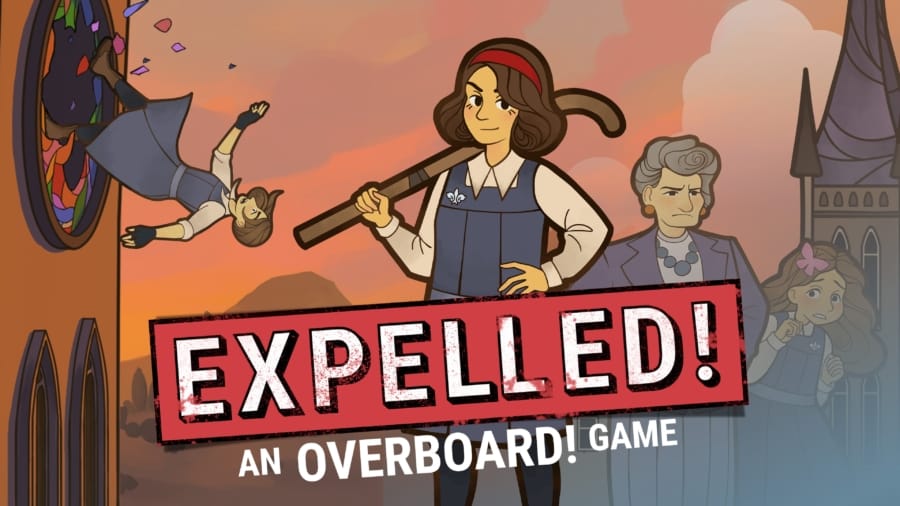Expelled! Spiel
Imagine you start playing a game with the description reads as following:
1922. Miss Mulligatawney’s School for Promising Girls is one of the best boarding schools in England. You are Verity Amersham, here on a scholarship – and today you’re going to be expelled for attempted murder.
Exactly how much do you understand out of this game description? I thought I understood most of them, but apparently having read some English novels from 20th century is not enough to grasp the full context aside from “expelled” and “attempted murder”. If you thought Monkey Wrench puzzle from Monkey Island was bad, imagine how the reverse would sound for the rest of the world that has little to no knowledge of 1920s England.
And this is the problem of Expelled!. The game either has a blindspot for its context or consciously decided to leave a spot blinded. It’s a boarding school mystery with its usual plot elements that are grounded on reality, but there are also the elements that are fictitious and fantastical. Therefore, there has to be a boundary which the player can comfortably say what will and will not work within the world. In my playthrough, the game was not able to establish a firm boundary. After all, the game pulls itself forward with special flashback narratives, but the following narrative relies on already knowing what has happened in the previous attempt. Is this work of witchcraft, or convenient literary device? The game does not tell; it simply says ‘that’s not how I recall it’.
The repeated nature of flashbacks, the fact that you have to re-do most of the works to face the same puzzle as before, is a major hurdle in the system to enjoy the mysteries therein. In fact, when it comes to the user convenience factor, the game doesn’t even let the players to read what has already been unlocked —one which, from my Ace Attorney experience, I thought would be a popular convention by now. The game goes through the intrigues you have learnt only once in the beginning of each cycle in a form of pop-ups, easily dozens of them. Why not give us the checklist of intrigues, which, by the way, could use the space the same quest-like checklist the game uses that often doesn’t work.
What compounded the confusion, ultimately, is where we, the players, are seeing the stories from. Each characters are hiding a dark secret of its own, and the protagonist is no exception. However, the stories we’ve played, the stories we watched unfold, are scratched out and made meaningless. The gaming conventions we had previously either take the loss in-game and move on (i.e. the protagonist failed but didn’t give up) or denied the loss happened in-game (i.e. the protagonist succeeded the first time). Expelled! takes a third approach, where the loss only happened to the player but not to the protagonist, whereby it has no canonical value. There is no way to move forward without a loss, but the player has to bear the burden, not the protagonist. Why did it matter at all to solve any of the aforementioned mysteries?
A side note, I first tried the game on an iPhone, where the iOS version of the app had some performance issues; the phone heats up uncomfortably. The game style of Expelled! is hardly demanding for modern smartphones, so I suspect it can be patched and ironed out. I finished the game on an Intel Mac, and as far as I could tell, there wasn’t any issues.
Conclusions: Out of Time, Physically
Expelled! begins with a rather benign concept that eventually escapes what it can manage. If you were expecting a thorough mystery ride like the one written by Agatha Christie, this isn’t it. I’m afraid the rollercoaster forces you to take a walk between every few feet during the ride, it then pretends those walks never happened and wishes you to never speak of it again. I’m left confused whether seeking more closures when the protagonist certainly got hers is needed. If you don’t mind walking, it is certainly a unique experience —an acquired taste.
